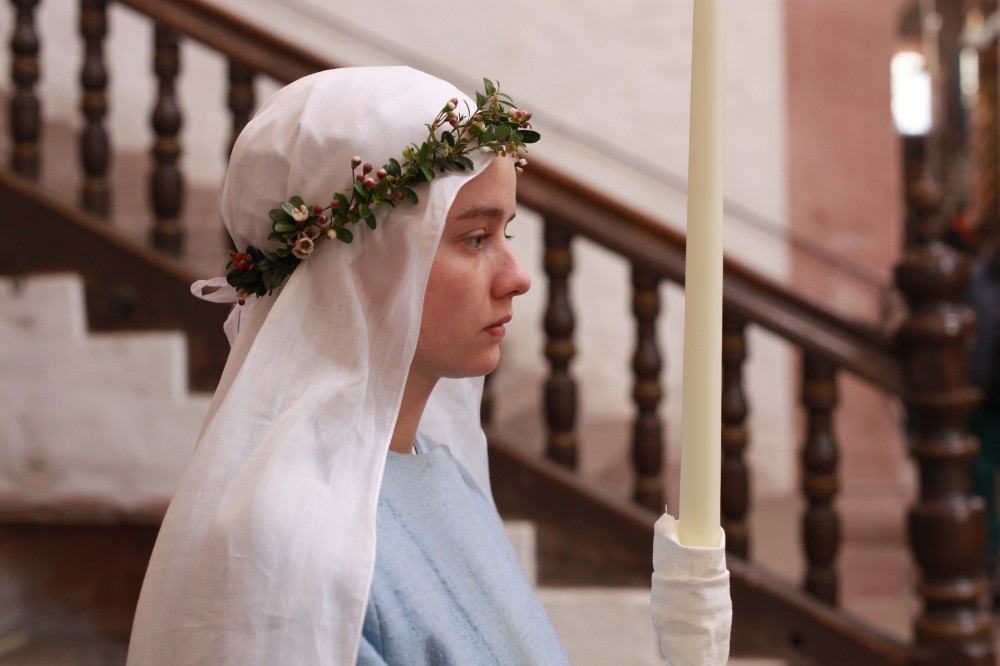
Director: Guillaume Nicloux | Cast: Isabelle Huppert, Pauline Etienne, Agathe Bonitzer, Louise Bourgoin, Martina Gedeck | Cinematography: Yves Cape | 114min |France |Drama
Based on the novel by French writer, philosopher, art critc Denis Diderot (1713-1784).
The Nun has had a tough time. Conceived by Denis Didérot in the eighteenth century, the nature of the work was open to controversy as a purportedly salacious account of innappropriate goings-on in a French nunnery. Jacques Rivette’s film version in 1966, was banned by French censors at the time of its release due to its negative representation of the Catholic Church. Now, nearly 50 years later, here is Guillaume Nicloux’s adaptation with a fine cast of Isabelle Huppert, Martina Gedeck, Agathe Bonitzer and Marc Barbé.
The Nun follows the story of a young woman, Suzanne Simonin (Pauline Étienne) who is confined to a religious order of sisters, under the auspices of Madame de Moni, due to her parents’ inability to fund her dowry. Once enconsed in the convent, Suzanne is put under pressure to take her vows, against her wishes, and subsequently also discovers she is illegitimate and has been locked away to assuage her mother’s guilt and make her peace with God.
This could be a brilliant opportunity for a discretely naughty insight or even a ‘no holds barred’ exposé surrounding the confessional memoirs of the provocative Sister Suzanne Simonin. But Guillaume Nicloux’s goes to the other end of the spectrum offering a visually exquisite and stylishly sleek, part candlelit part naturalistic, masterpiece concentrating only on the ascetic aspects of Suzanne’s confinement. He highlights her disappointment with her mother’s deceit, the physical and emotional discomfort of being in spartan confines without affection, physical comfort or close friends but there is no attempt to delve further into her psyche.
Nicloux paints Suzanne as a picture of perfect introversion and blind innocence but also of passive resignation living under sensory deprivation. Although Pauline Etienne plays her part admirably, this bone dry and formal treatment lacks the necessary element of drama, tension or even empathy required to make the piece engaging in a way that Bruno Dumont achieves with Juliette Binoche in Camille Claudel 1915, which has a set of circumstances.
Isabelle Huppert lights up the screen when she finally arrives as the more motherly Mother Superior. She is captivated by Suzanne’s pale beauty and serenity, for reasons that will become evident, and gives a delicious turn with wry, comedic appeal tinged with bittersweet sadness, as only she knows how.
The Nun is a technically accomplished film with a beautiful visual aesthetic and some strong performances but lacks dramatic edge to offer really appealing insight and plods along so slowly that it requires the patient of a saint, at times, to endure. MT
[youtube id=”7qBzqv3nNkI” width=”600″ height=”350″]
THE NUN IS ON GENERAL RELEASE FROM 1 NOVEMBER 2013